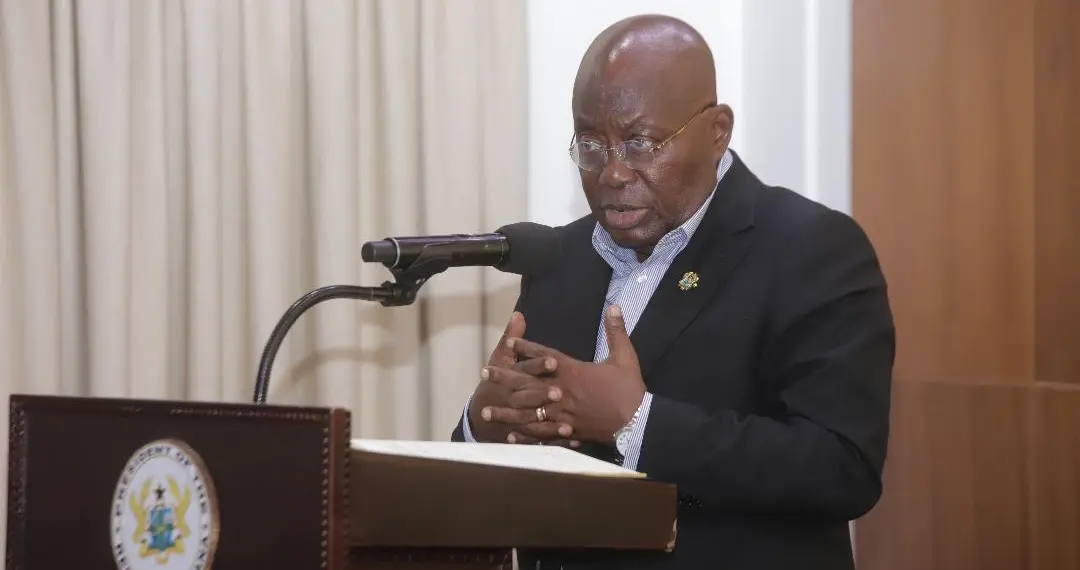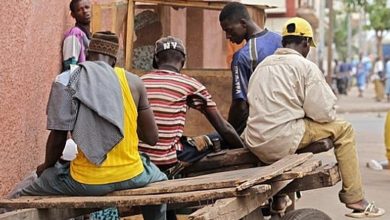Au’s Contribution To Artisanal Fisheries in Africa

By Nana Darko
Since the conception of CAOPA, the organization has earned the support of giant bodies in Africa who are ready to support its objectives and goals – one of such being the African Union (AU). Under this body, a division has been set up to support the animal resource of African nations called the AU/IBAR (African Union Inter-African Bureau for Animal Research).
This year, during the World Fisheries Day Celebration organized at Agadir, Morocco, this noble organization had the platform to present to the panel and the world what they are doing to improve the artisanal fisheries in Africa. A representative from the AU on Sunday November 22, 2015 had the platform during the Theme 1 of the workshop which was christened: Reform of African fisheries Policies: How will the FAO guidelines on sustainable small-scale fisheries be integrated?
It was a blissful morning – waking up from a successful celebration at IMI OUDAR, Agadir. Immediately after the presentation from the FAO representative, we were all stunned by the work done and being done by this ardent body here in Africa. REJOPRAO, the official media organization was there to cover the event and is pleased to share with you some passages and relevant details from his presentation.
His presentation was titled: The Policy Framework and Reform Strategy of Fisheries and Aquaculture and its contribution to the implementation of SSF (Small-Scale fisheries) Voluntary Guideline in Africa. The policy framework and reform strategy framework was mentioned as follows; Stakeholder consultations > Regional Assessments > Stakeholder Consultations > PFRS (Policy Framework and Reform Strategy) Adoption by political leaders > PFRS Implementation. All these carefully considered with the main objective in mind. To make this policy work, he explained that an agreement was made on the process and situations accessed for the elements in the draft policy framework. There after a draft of the PFRS prepared for technical review and examination. The Ministers adopted the PFRS and the AU endorsed and this was used by the member states and stakeholders.
During the AU Joint Conference of Ministers of Agriculture, Rural Development, Fisheries and Aquaculture held in Addis Ababa, Ethiopia on May 1-2, 2014, the PFRS was adopted by resolution. The document: Doc. EX.CL/842(XXV) was endorsed by the African Head of States and Governments present during the twenty-fifth (25th) ordinary session which took place in Malabo, Equitorial Guinea on 20 – 24 June 2014.
The salient area covered by the PFRS are:
- Conservation and sustainable resource use
- Small-scale fisheries sustainable development
- Sustainable Aquaculture development
- Responsible and equitable Fish Trade and Marketing
- Strengthened Regional and Sub-Regional Cooperation
- Awareness Enhancing and Huma-capacity development
- High Seas Fisheries
The AU/IBAR has as its main objective to improve and strengthen the contribution of small-scale fisheries to food and nutrition security and socio-economic benefits for poverty alleviation of fishing communities. They are working towards this through the improvement on traditional fisheries management systems by promoting selective and location-specific gear and fisheries governance through participatory management.
In support he mention that the low level of organization of the SSF actors and communities in most countries in Africa is hindering their effective participation in fisheries Governance. Presently SSF accounts for 60% of Africa’s fisheries production and almost all the catches from this noble sector are destined for human consumption.
He raised a point about Africa’s current state with regards to our stock depletion as being a result from inadequate management of our fisheries resources and added that information on SSF for the formulation of management decisions are also either not available or adequate.
Now highlight on the expected outcomes from the PFRS was what we were anticipating to hear and two paramount ones mentioned were that the capacity of the fisheries stakeholders and institutions for participatory management were to be developed and nurtured and the principles of the voluntary guidelines for securing SSF for improve livelihoods, food and income of the fishing communities and other related operators become more recognized and secured in all member states.
To successfully achieve these the PFRS need to support the fishing communities to make them autonomous and able to engage in the fisheries policy making process and support the preferential treatment of the marginalized groups it being the women and the youth.
Progressive meetings and woks are true evidence of AU’s poise support for the SSF in Africa. The African Fisheries Reform Mechanism (ARFM) has been established and made operational. In Cambodia – March 2015 a global forum on right-based approaches for fisheries was held this was named “UserRights 2015”. He was quick to mention the work programme being develop in close collaboration with the UN-FAO after their meeting in Rome, Italy this October. This he said is to identify a first set of priority areas in the governance of tenure and fisheries rights-based management systems.
AU/IBAR has coordinated a meeting of Regional Non-States Actors (NSAs) who are active organizations in the fisheries and aquaculture sector, a step towards the development of action plans for the establishment of regional coordination mechanism for the NSA in Western, Central, Eastern and Southern Africa. The formulation of the Terms of Reference that is the Mandates and Rules of Procedure for a continental platform of NSA in Fisheries and Aquaculture sector in Africa is slated for December 2015.
With all these remarkable steps already taken towards food security and poverty eradication in Africa, there are plans to hold another meeting by the Organization for the Continental Think Tank on Sustainable Development of Small Scale Fisheries for increased contribution to the Africa Socio-Economic Development which is in line with the 2025 Africa Agriculture Transformation Agenda which includes Fisheries and Aquaculture. The planned venue is Dakar, Senegal and proposed dates being 18 – 22 January 2016. AU/IBAR needs commendations for their immense contribution in this area. Just five (5) months their workshop in FAO Sub-Regional Office in Addis Ababa, Ethiopia this follow-up meeting is already in place.



